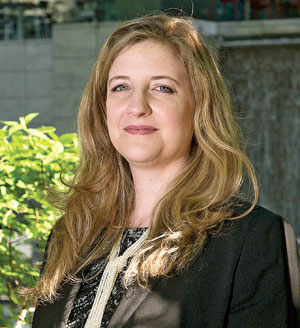A judge has thrown out a long-running legal fight over a traffic ticket for delay in a recent Ontario Court of Justice case that lawyers say illustrates how the Supreme Court of Canada’s
R. v. Jordan decision might actually be lengthening delays in such matters.

Law student Tanvir Islam has endured more than two years of legal wrangling over an $85 ticket Toronto police gave him in 2014 for allegedly failing to obey a stop sign — a Part 1 offence under the Provincial Offences Act.
Jordan Glick, a partner with WeirFoulds LLP, who was not involved in the case, says the decision shows that the Supreme Court’s decision in
Jordan is allowing provincial courts to tolerate longer delays than they would have under the old framework. The
Jordan decision put an 18-month cap on delays in provincial courts, overturning the previous guidelines that held delays could not exceed eight to 10 months, Glick says.
“I suspect that a lot of cases that would have been viewed as intolerable from a delay standpoint prior to
Jordan from a POA Part 1 perspective . . . may now be viewed as tolerable delay, which might lead to greater complacency, less resources, less of a focus on these offences, which really do touch quite a large volume of people in Ontario every year,” he says.
In the decision,
R. v. Islam, justice of the peace Joanna Opalinski declined to rule on whether the presumptive ceiling of 18 months should apply to Part 1 matters, “as they are intuitively supposed to be simple in nature,” but went on to say a ceiling in the range of 12 months might be more appropriate. She added that it was not necessary for the court to rule on this point in this matter as the delay was well in excess of 18 months.
Islam was first issued his ticket in November 2014 and later opted for a trial rather than paying the fine. He said he was not aware that he missed a trial date in April 2015 until he later went to try to renew his driver’s licence.
While he was convicted
in absentia on the original trial date, Islam was granted a new trial scheduled for February 2016.
The matter was then adjourned a number of times as Islam had requested disclosure of a dash cam video of the officer who issued his ticket and so that Islam could perfect applications.
He eventually filed an application that the proceedings should be delayed under s. 11(b) of the Charter.
Mary Paterson, a partner with Osler Hoskin & Harcourt LLP, says the case is an example of the frustration that courts and parties on all sides have with the procedural difficulties of the system.
“An $85 ticket requires people to go to court multiple times, demand disclosure, get photocopies of it. It’s a very intense system to deal with what is a small dollar figure ticket,” she says.
Prosecutors argued that Islam, who was self-represented, caused the overwhelming majority of delay that happened in the case, saying his submissions were “inaccurate, imprecise and have no basis in reality.”
They also claimed that had the trial started on the second scheduled date in February 2016, it would have been well within the 18 months.
The total delay was 30 months from the time he was issued the ticket, but Opalinski determined that eight months and 18 days were attributable to Islam as he had failed to perfect applications. This still left a net delay of 21 months, which Opalinski noted was well beyond the 18-month cap set out in
Jordan.
Opalinski noted that part of the issue of delay rests with the prosecutors but also the “often irreverent response and caustic and adversarial behaviour” of Islam.
“This case should never have taken the time it has taken to get to today’s date,” she wrote. Islam’s case is also notable as Opalinski ruled in an earlier decision that he could serve the government using a web-based electronic faxing service, rather than a traditional fax machine.
The Crown unsuccessfully challenged this method of service.
Islam says his case shows there is a lack of communication and clarity for self-represented litigants in the provincial courts and deficiencies in its system.
“It’s a very old school mentality in the sense you have to go file an affidavit, commission it, send in a fax receipt, all that sort of stuff that is very archaic,” he says.
James Morton, of Morton Barristers, says the decision confirms that the delay in POA matters starts at the time a ticket is issued.
A spokeswoman for the Ministry of the Attorney General declined comment and referred questions about the case to the City of Toronto. John Gosgnach, a City of Toronto spokesman, says that city staff are still reviewing the decision and considering whether or not to appeal.

 Law student Tanvir Islam has endured more than two years of legal wrangling over an $85 ticket Toronto police gave him in 2014 for allegedly failing to obey a stop sign — a Part 1 offence under the Provincial Offences Act.
Law student Tanvir Islam has endured more than two years of legal wrangling over an $85 ticket Toronto police gave him in 2014 for allegedly failing to obey a stop sign — a Part 1 offence under the Provincial Offences Act.